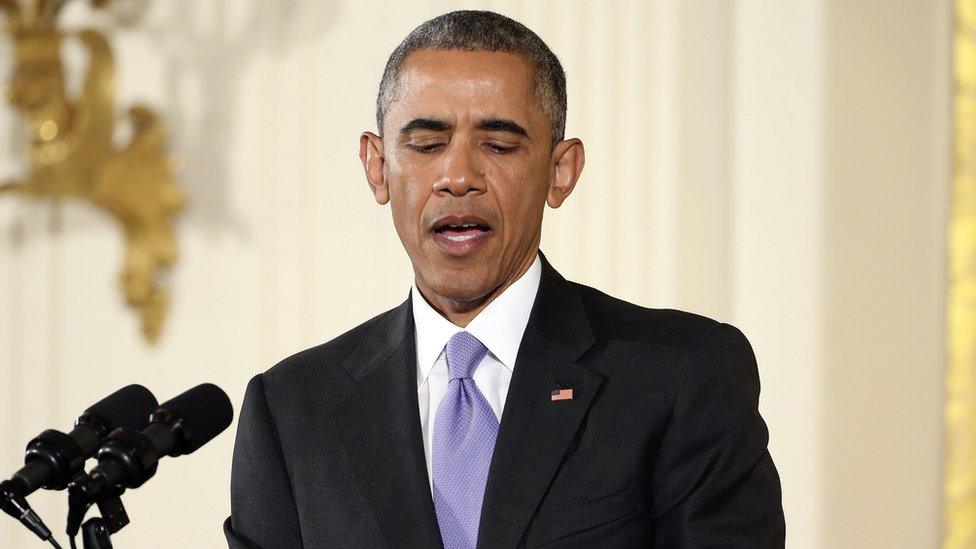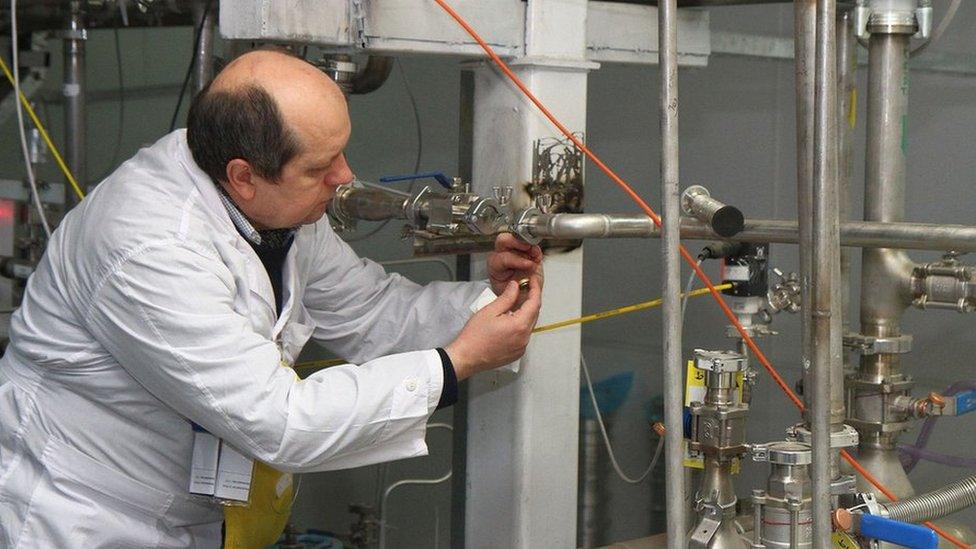US backing for Iran nuclear deal grows
- Published

President Obama is moving closer to a victory on the Iran deal
Democrats in the US Senate have gained enough votes to block the passing of a resolution against the Iran deal, fighting against Republican opposition.
Four Democrats added their support to the deal on Tuesday, denying the Republicans the 60 votes they need to move forward with a vote against it.
It means President Barack Obama would not have to use his veto.
The deal was reached in July between Iran and six world powers, and is due to be implemented in November.
They want Iran to scale back its sensitive nuclear activities to ensure that it cannot build a nuclear weapon.
Iran, which gets crippling international sanctions lifted, has always insisted that its nuclear work is peaceful.
Some of those sanctions were enacted by the US Congress, so disapproval by Congress could have made the deal unravel.

Analysis: Barbara Plett Usher, BBC News, Washington
President Obama seems to have won the numbers game on the Iran nuclear deal.
Forty-two Democratic senators have now declared their support. That's enough to block a vote on a bill disapproving the agreement, sparing Mr Obama the embarrassment of having to veto it.
That could help strengthen the credibility of the deal domestically, and the credibility of the US government internationally.
But it's not clear if all the senators backing the deal would be prepared to shut down a vote on it. And either way the deal will almost certainly be implemented, because Congress doesn't have the numbers to override a veto.

"The agreement will stand," said Senator Harry Reid of Nevada. "America will uphold its commitment and we will seize this opportunity to stop Iran from getting a nuclear weapon."
Republicans vehemently oppose the pact and think it makes dangerous concessions to Iran. Four Democratic senators are also opposed.
Prime Minister of Israel Benjamin Netanyahu says the deal provides a "sure path to nuclear weapons".

Under the agreement, inspectors will have enhanced access to Iranian nuclear sites such as this power plant in Natanz
Activists on both sides have spent millions of dollars on advertising campaigns and pro-Israeli lobbying groups have put pressure on lawmakers to not support the deal.
Negotiations between Iran and six world powers - the US, UK, France, China, Russia and Germany - began in 2006.